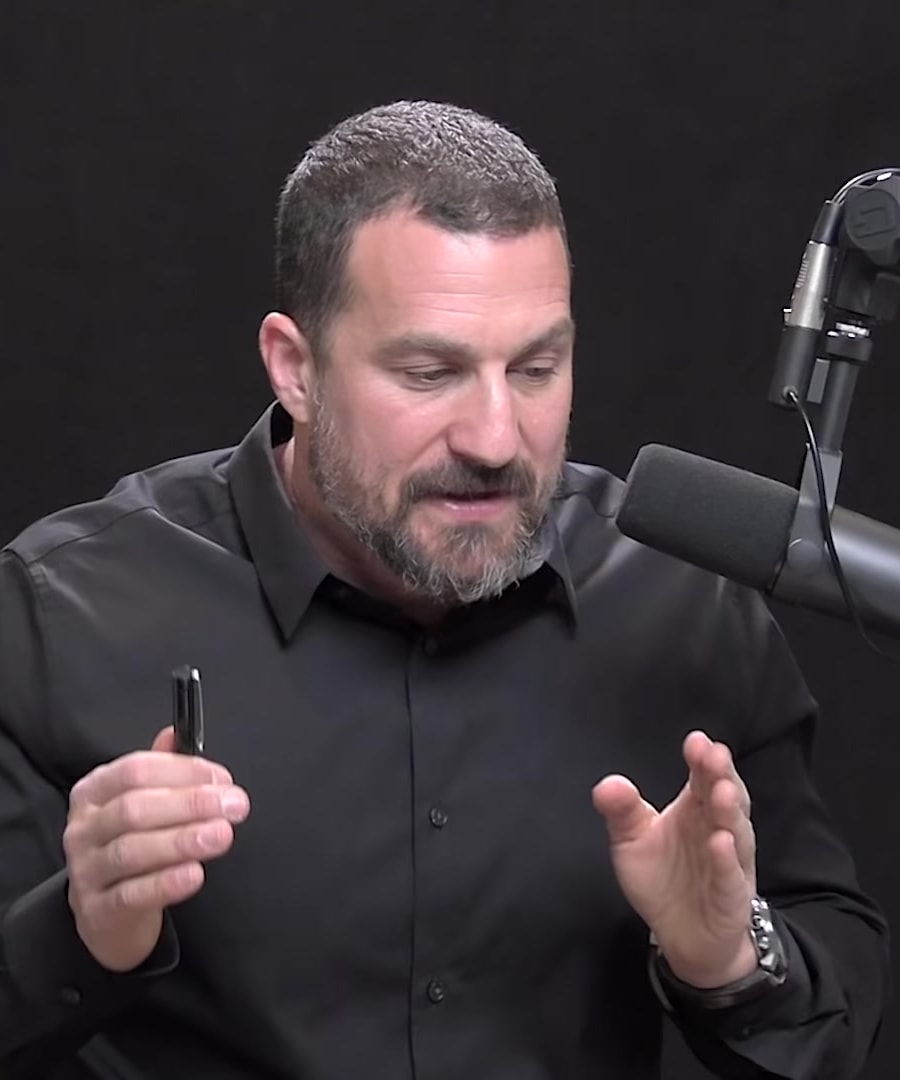Can neurofeedback brain training support emotional stability?
Sources:
Neurofeedback brain training is not directly discussed by in the context of supporting emotional stability based on the retrieved data. However, related concepts have been explored such as the importance of making errors for neuroplasticity and learning, which are essential for developing new behaviors and potentially improving emotion regulation 1. Additionally, the concept of emotional stability, particularly how someone responds to stress and the importance of having self-regulatory mechanisms, has been mentioned as crucial in long-term relationships 2. There's also a reference to the fact that being able to regulate one's autonomic nervous system and slow heart rate through breathing can enhance overall mood and mental health 3. While these discussions do not directly address neurofeedback, they highlight aspects of learning and self-regulation that may overlap with the objectives of neurofeedback in promoting emotional stability.
RELATED QUESTIONSWhat is the supporting research for neurofeedback brain training and emotional stability?
Sources:
The retrieved data doesn't provide direct citations discussing the supporting research for neurofeedback brain training specifically in the context of emotional stability. touches on the concept of affect and how regular care for one's physiological and psychological needs can shift one's neurochemical and neural environment, thereby influencing the likelihood of experiencing certain emotions 1. He also discusses how one's response to stress and the development of self-regulatory mechanisms are crucial for emotional stability, which is important in relationships and navigating life's stressors 2. Additionally, he elaborates on how interactions with significant others can affect autonomic arousal and perception of self, which in turn impacts the perception of other potential partners, highlighting the importance of having a stable internal representation of oneself for romantic attachment 3. While these topics are related to emotional stability, they do not specifically address the empirical research on neurofeedback brain training and its effects on emotional stability.
RELATED QUESTIONSFind expert opinions on neurofeedback for emotional stability
Sources:
According to , an expert in psychology, assessing factors like emotional stability is critical for long-term relationships. He recommends experiencing potentially stressful situations together, such as going on a trip, to observe how a person responds to unfamiliar environments. This can reveal how someone manages stress and how quickly they return to baseline after a stressful event. While this does not directly address the use of neurofeedback for emotional stability, it underscores the importance of how individuals cope with stress, which is a key aspect of emotional regulation 1.
RELATED QUESTIONSAre there any criticisms or limitations of neurofeedback for emotional stability?
Sources:
The search did not yield any clips specifically addressing criticisms or limitations of neurofeedback for emotional stability from the . Therefore, it appears that such a topic may not have been covered in the podcast episodes that are currently in the database, or there might not be a clip that directly links to the user's inquiry. If you seek expertise on this matter, I recommend considering alternative authoritative sources or consultations with professionals who specialize in neurofeedback.
RELATED QUESTIONSList clips similar to "Assessing Emotional Stability"
Sources:
Here are some clips similar to "Assessing Emotional Stability":
-
Assessing Emotional Stability: David Buss mentions the importance of assessing things like emotional stability for long-term mating by doing activities such as going on a trip together. This allows you to see how someone responds to stress, which is crucial information for a successful relationship 1.
-
Tools for Mood and Mental Health: Andrew Huberman presents various tools and resources for mood and mental health, mentioning contributions from Dr. Lisa Feldman Barrett and Dr. Paul Conti 2.
-
Mental Health Insights: In this clip, Andrew Huberman introduces a four-episode series with Dr. Paul Conti that teaches about the structure of our minds and strategies to enhance mental health, providing protocols for addressing various mental health concerns 3.
-
REM Sleep and Emotional Stability: Andrew Huberman explains the importance of REM sleep in uncoupling potential emotionality between experiences, drawing parallels to clinical practices that help individuals move through trauma 4.
-
Understanding Emotions: This clip features a discussion on the complexity of emotions, their context-dependence, and tools for controlling different timelines of stress 5.
-
Enhancing Emotional Awareness: A focus on how self-monitoring and increasing our awareness of our emotional states throughout the day can improve mood and mental health, emphasizing the significance of having nuanced emotions 6.
RELATED QUESTIONS-
Summarize Dr. David Buss: How Humans Select & Keep Romantic Partners in Short & Long Term | Huberman Lab #48
Sources:
In , hosts evolutionary psychologist , where they delve into the intricacies of human mating behavior and partner selection. Principles discussed include:
-
Mate Selection: They examine the evolutionary psychology of human mate choice, addressing why certain traits are preferred and how these preferences manifest in partner selection strategies.
-
Emotional Stability: stresses the importance of assessing emotional stability in a partner by observing their response to stress, which is crucial for long-term relationships 1.
-
Deception in Mate Selection: The conversation also touches on how deception has always played a role in mate selection, with modern online environments providing new avenues for deceit, particularly regarding long-term intentions 2.
-
Infidelity: discusses the concept of genetic cuckoldry and shares his shift from endorsing the dual mating strategy to the mate switching hypothesis as a more likely explanation for why most women have affairs 3.
-
Mate Retention Tactics: They talk about various mate retention tactics used in relationships, including psychological manipulations and efforts to reduce mate value discrepancies 4.
-
Jealousy and Violence: explores the connection between jealousy, intimate partner violence, and how they relate to mate value discrepancies within a relationship 5.
Throughout the episode, the discussion illuminates the complex interplay of evolutionary pressures, personal psychology, and societal influences in the realm of romantic partnerships.
RELATED QUESTIONS-
Can neurofeedback brain training support emotional stability?
- RELATED QUESTIONS
What is the supporting research for neurofeedback brain training and emotional stability?
- RELATED QUESTIONS
Find expert opinions on neurofeedback for emotional stability
- RELATED QUESTIONS
Are there any criticisms or limitations of neurofeedback for emotional stability?
- RELATED QUESTIONS
List clips similar to "Assessing Emotional Stability"
- RELATED QUESTIONS
Summarize Dr. David Buss: How Humans Select & Keep Romantic Partners in Short & Long Term | Huberman Lab #48
- RELATED QUESTIONS













